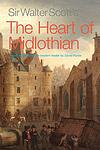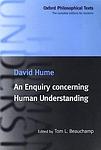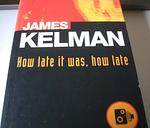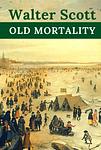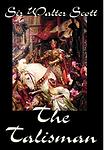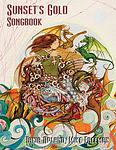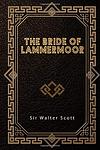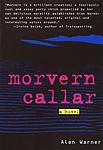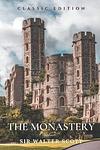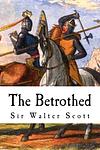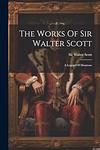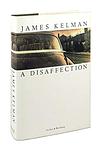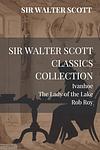The Greatest Scottish "Scotland" Books of All Time
Click to learn how this list is calculated.
This list represents a comprehensive and trusted collection of the greatest books. Developed through a specialized algorithm, it brings together 300 'best of' book lists to form a definitive guide to the world's most acclaimed books. For those interested in how these books are chosen, additional details can be found on the rankings page.
Genres
The "Scotland" category of books encompasses literature that is set in Scotland, written by Scottish authors, or explores Scottish culture, history, and traditions. These books may include fiction, non-fiction, poetry, and memoirs that capture the unique spirit of Scotland, its landscapes, people, and folklore. From the rugged Highlands to the bustling cities, the "Scotland" category offers a diverse range of books that celebrate the rich heritage and enduring legacy of this proud nation.
Countries
Date Range
Reading Statistics
Click the button below to see how many of these books you've read!
Download
If you're interested in downloading this list as a CSV file for use in a spreadsheet application, you can easily do so by clicking the button below. Please note that to ensure a manageable file size and faster download, the CSV will include details for only the first 500 books.
Download-
1. The Prime of Miss Jean Brodie by Muriel Spark
The novel is set in 1930s Edinburgh and follows the story of six girls under the tutelage of an unconventional teacher, Miss Jean Brodie. Miss Brodie, in her prime, takes it upon herself to educate the girls about life, love, politics, and art, often disregarding the traditional curriculum. The narrative explores the influence of Miss Brodie on the girls, the consequences of her nonconformist teachings, and the ultimate betrayal that leads to her downfall.
-
2. The Private Memoirs and Confessions of a Justified Sinner by James Hogg
Set in 18th century Scotland, the novel explores the psychological downfall of a deeply religious man who believes he is predestined for salvation and thus justified in committing a series of murders. He is driven to this path of self-destruction by a mysterious stranger who may be either a devilish tempter or a manifestation of his own deranged mind. The book serves as a critique of religious fanaticism and a chilling exploration of the dark side of human nature.
-
3. The Wealth of Nations by Adam Smith
This influential economic book presents a groundbreaking theory that argues for free market economies. The author posits that individuals acting in their own self-interest within a system of natural liberty will result in societal benefit, a concept often referred to as the "invisible hand" theory. The book also critiques mercantilism and explores concepts such as the division of labor, productivity, and free markets. It is widely considered one of the foundational texts in the field of economics.
-
4. Lanark by Alasdair Gray
"Lanark" is an unconventional narrative that combines elements of fantasy, dystopia, and realism. The protagonist, a man named Lanark, moves through two parallel existences. In one, he's a young man named Duncan Thaw in post-war Glasgow, struggling with his artistic ambitions and personal relationships. In the other, he's Lanark in the grim, bureaucratic city of Unthank, suffering from a mysterious skin condition and grappling with his identity and purpose. The novel explores themes of love, alienation, creativity, and the human condition, presenting a complex and thought-provoking portrait of life and society.
-
5. The Heart Of Midlothian by Sir Walter Scott
The novel is a historical tale set in 18th-century Scotland, revolving around Jeanie Deans, a young woman of strong moral character, who embarks on a daunting journey from Edinburgh to London to seek a royal pardon for her wrongfully accused sister, Effie, who faces execution. Along the way, Jeanie encounters various characters from different strata of society, confronting issues of justice, morality, and national identity. Her steadfast loyalty and unwavering principles highlight the cultural and social tensions of the time, as the narrative intertwines personal drama with broader historical events, including the Porteous Riots and the influence of the Scottish Reformation.
-
6. An Enquiry Concerning Human Understanding by David Hume
This philosophical work explores the nature of human knowledge, arguing that all of our understanding comes from experience rather than innate ideas. The author challenges the idea of causality, suggesting that our belief in cause and effect is based on habit rather than logical reasoning. The book also discusses the limitations of human understanding, including the inability to fully comprehend the concept of God or the soul, and the impossibility of certain knowledge. The author's skepticism about traditional philosophical concepts has had a significant influence on later philosophers and the field of epistemology.
-
7. Trainspotting by Irvine Welsh
This novel is a gritty, raw portrayal of a group of heroin addicts living in Edinburgh, Scotland. The narrative is non-linear and told from multiple perspectives, providing a deep dive into the minds and lives of these characters. The story explores themes of poverty, addiction, friendship, and the struggle to escape one's circumstances, all set against the backdrop of a bleak urban landscape. It is known for its strong Scottish dialect, graphic content, and dark humor.
-
8. How Late It Was, How Late by James Kelman
The novel is a stream-of-consciousness narrative told from the perspective of Sammy, a shoplifter and ex-convict from Glasgow who wakes up in an alley after a two-day drinking binge to find he is completely blind. As Sammy struggles to navigate his new reality, he contends with bureaucratic systems, confronts his past, and grapples with his relationships, all while trying to understand and adjust to his sudden loss of sight. The story is a gritty exploration of working-class life, the human condition, and the nature of reality.
-
9. Guy Mannering by Sir Walter Scott
The novel unfolds as a tale of prophecy and fate intertwined with the lives of its characters, primarily centering around Henry Bertram, the heir to the estate of Ellangowan, who is kidnapped as a child by smugglers after his father's financial ruin. The story spans over two decades, following Henry's adventures and misadventures as he grows up under an assumed identity. The narrative is rich with themes of loyalty, inheritance, and the supernatural, as the predictions of the astrologer Guy Mannering and the Gypsy matriarch Meg Merrilies play out in the lives of the Bertrams and their acquaintances. Set against the backdrop of the Scottish Lowlands, the tale weaves through a tapestry of social change and personal redemption, culminating in the restoration of family and fortune.
-
10. Old Mortality by Sir Walter Scott
Set in the 17th century during the Covenanting Rebellion in Scotland, the novel weaves a tale of adventure, romance, and political intrigue around the historical events of the time. The story follows the young hero, Henry Morton, who is caught between his loyalty to the Presbyterian Covenanters and his love for Edith Bellenden, a Royalist. As Morton becomes embroiled in the conflict, he must navigate a path through the tumultuous civil war, facing moral dilemmas and the consequences of his choices. The narrative also explores themes of honor, tradition, and the impact of history on individual lives, all while providing a rich portrayal of Scottish culture and the complexities of religious and political loyalties.
-
11. The Talisman by Sir Walter Scott
"The Talisman" is a historical novel set during the Third Crusade, focusing on the conflict between Richard the Lionheart, King of England, and Saladin, Sultan of Egypt and Syria. The story explores themes of chivalry, honor, and the cultural clash between the Christian West and the Islamic East. The plot revolves around a talisman, which is believed to have healing powers, and the knight who is tasked with delivering it to Richard. The novel presents a nuanced view of both sides of the Crusade, highlighting the virtues and flaws of each.
-
12. Sunset Song by Lewis Grassic Gibbon
Set in the early 20th century in the fictional estate of Kinraddie in Scotland, the narrative follows the life of a young woman, Chris Guthrie, as she comes of age amidst the challenges of rural Scottish life. Torn between her love for the land and the pull of modernity, Chris navigates personal loss, the impact of World War I, and societal changes. The novel poignantly explores themes of identity, resilience, and the enduring connection to one's heritage, against the backdrop of the sweeping agricultural and social transformations of the time.
-
13. The Bride Of Lammermoor by Sir Walter Scott
Set in the tumultuous 17th century Scotland, this tragic novel weaves a tale of doomed love and political intrigue. The story centers around the passionate and ill-fated romance between Edgar, the Master of Ravenswood, who is impoverished and seeking to restore his family's honor, and Lucy Ashton, the daughter of his father's political enemy. Their love is challenged by societal pressures, family enmity, and a relentless twist of fate, leading to a dramatic and harrowing conclusion that underscores the destructive power of vengeance and the inevitable tragedy that can arise from the rigid constraints of honor and duty.
-
14. Morvern Callar by Alan Warner
The novel follows the story of Morvern Callar, a young woman living in a small Scottish port town, who wakes up one Christmas morning to find her boyfriend has committed suicide. Instead of reporting his death, she decides to erase all evidence of it, appropriates his unpublished novel as her own, and uses his money to go on a holiday in Spain. The book explores themes of grief, identity, and personal transformation, as Morvern navigates her way through life with a detached and indifferent attitude.
-
15. Poems Of Robert Burns by Robert Burns
This collection showcases the lyrical genius of a celebrated Scottish poet, renowned for his pioneering use of the Scots language and his profound influence on the Romantic movement. The anthology includes a rich variety of poems, ranging from heartfelt songs of love and friendship to biting satires and social commentaries. The poet's works reflect his deep connection to the Scottish countryside, his empathy for the common man, and his passionate advocacy for social equality. His enduring legacy is evident in the timeless appeal of his verses, which continue to resonate with readers around the world, capturing the universal human experience with wit, emotion, and eloquence.
-
16. Redgauntlet by Sir Walter Scott
Set in the mid-18th century, the novel weaves a tale of political intrigue and personal struggle, centered around a Jacobite rebellion plot. The story follows a young man who, while on a journey to discover his family's past, becomes entangled in a secret plan to restore the Stuart monarchy to the British throne. As he navigates a world of clandestine meetings, coded letters, and disguised identities, he encounters historical figures and experiences the tension between loyalty to one's heritage and the reality of contemporary political power. The narrative explores themes of honor, betrayal, and the complexities of allegiance during a tumultuous period in Scotland's history.
-
17. The Monastery by Sir Walter Scott
"The Monastery" is a historical novel set in the time of the Reformation in Scotland, revolving around the lives of the inhabitants near the fictional Monastery of St. Mary's of Kennaquhair. The story explores the impact of the religious conflict on the local community and the monastery's inhabitants, weaving a tale of romance, political intrigue, and the struggle between Protestant reformers and the established Catholic Church. Central to the narrative are the fortunes of the Glendinning family, particularly the two brothers, Edward and Halbert, whose lives take dramatically different paths influenced by the tumultuous events of their time.
-
18. The Abbot by Sir Walter Scott
"The Abbot" is a historical novel that continues the story of Mary, Queen of Scots, after her imprisonment in Loch Leven Castle, focusing on her dramatic escape, her brief period of renewed power, and her ultimate departure from Scotland. The narrative intertwines her story with that of Roland Graeme, a young man who finds himself caught between his loyalty to the queen and his own personal ambitions. Set against the backdrop of political intrigue and religious conflict during the Reformation, the novel explores themes of loyalty, love, and power, as characters navigate the treacherous waters of the Scottish court.
-
19. The Antiquary by Sir Walter Scott
"The Antiquary" is a novel set in the late 18th century that revolves around Jonathan Oldbuck, an eccentric and somewhat pedantic scholar with a deep fascination for antiquities and local history. The story unfolds in a small Scottish town where Oldbuck becomes involved in the lives and troubles of other characters, including Lovel, a mysterious young man with an unclear past, and the Mucklebackit family, who suffer a tragic loss. The narrative combines elements of romance, mystery, and comic relief while exploring themes of national identity and the impact of the past on the present. Through its detailed setting and character-driven plot, the novel offers a rich portrayal of Scottish life and customs during the period.
-
20. The Betrothed by Sir Walter Scott
"The Betrothed" is a historical novel set during the time of the Crusades, focusing on the challenges and tribulations of a young noblewoman who is promised in marriage to a Welsh chieftain as part of a political alliance. The narrative delves into themes of loyalty, honor, and love, as the betrothed couple navigates the complexities of their arranged engagement amidst the backdrop of war and political strife. The story explores the impact of personal and political conflicts on individual destinies and relationships, offering a rich tapestry of medieval life, chivalric values, and the struggle for power.
-
21. The Black Dwarf by Sir Walter Scott
"The Black Dwarf" is set in the tumultuous borderlands of Scotland during the early 18th century, a time marked by rebellion and political upheaval. The novel follows the mysterious and misanthropic character known as the Black Dwarf, who lives in isolation and is rumored to possess magical powers. The narrative intertwines his enigmatic life with the romantic and political entanglements of the nearby residents, exploring themes of love, betrayal, and redemption against a backdrop of social and political turmoil. The story delves into the struggles between the Jacobite supporters and the Hanoverian government, reflecting the complex interplay of personal and historical narratives.
-
22. A Legend Of Montrose by Sir Walter Scott
"A Legend of Montrose" is a historical novel set during the 17th-century Wars of the Three Kingdoms, focusing on the Scottish segment of the conflict. The story revolves around the military campaign of James Graham, 1st Marquis of Montrose, who leads a Royalist army against the Covenanters. Central to the narrative is the character Allan M'Aulay, a seer with a mysterious past, and his interactions with the mercenary Captain Dugald Dalgetty. The novel blends a rich tapestry of loyalty, betrayal, and warfare, while also exploring themes of honor, love, and the supernatural amidst the tumultuous backdrop of Scottish history.
-
23. A Disaffection by James Kelman
"A Disaffection" is a thought-provoking novel that delves into the mind of Patrick Doyle, a disillusioned schoolteacher living in Glasgow. As he navigates through his mundane existence, Patrick's internal monologue exposes his deep-rooted dissatisfaction with society, his job, and his relationships. Through a raw and introspective narrative, the book explores themes of alienation, identity, and the struggle to find meaning in a world that seems devoid of purpose.
-
24. The Poems Of William Dunbar by William Dunbar
This collection brings together the poetic works of a prominent Scottish poet from the late 15th and early 16th centuries, known for his keen wit and masterful command of Middle Scots. The poems range from the humorous to the somber, offering a rich tapestry of themes that include moral and religious reflections, satirical commentary on the court and society of his time, and deeply personal musings. The poet's most famous works, such as his lament for the state of the world and his expressions of the transitory nature of life, showcase his skill in both lyrical and narrative forms, making this anthology a valuable window into the literary and cultural milieu of medieval Scotland.
-
25. The Lady Of The Lake by Sir Walter Scott
"The Lady of the Lake" is a narrative poem set in the Trossachs region of Scotland. It centers around the conflict between King James V and the powerful Douglas clan, interwoven with a romantic plot involving Ellen Douglas, the titular Lady of the Lake. The poem unfolds in six cantos, each highlighting the natural beauty of the Scottish landscape, the intricate politics of the time, and the chivalric codes of honor. The story explores themes of loyalty, identity, and the intersection of the natural and human worlds, culminating in a dramatic resolution that reconciles the characters with their king.
Reading Statistics
Click the button below to see how many of these books you've read!
Download
If you're interested in downloading this list as a CSV file for use in a spreadsheet application, you can easily do so by clicking the button below. Please note that to ensure a manageable file size and faster download, the CSV will include details for only the first 500 books.
Download



